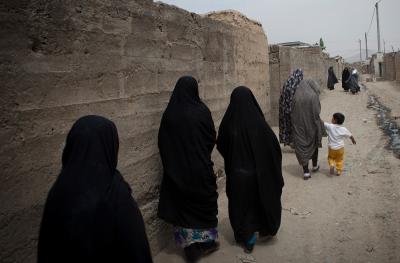Climate change is unfortunately no longer news. Rising levels of air pollution, horrific natural disasters, and wildfires destroying Earth’s biodiversity appear in the headlines much too often. But new evidence is telling us that around the world, women unfairly bear the brunt of climate change’s wrath, creating a ripple effect for families, communities, and entire nations.
The distorted effect of climate change on women is a result of intersecting factors that already increase their risk to chronic inequality. Women compose the majority of the world’s poor, and lack the ability to participate in decision-making and economic opportunities, especially in conflict-torn nations. When resources become limited due to climate change’s effect on seasonality and growing patterns, gender-based violence is used to restrict women’s access to resources is used to restrict women’s access to resources and allows militant groups to remain in control of supplies.
This dangerous cycle worsens during climate emergencies, such as floods, typhoons, and wildfires. In these times of disaster, women’s mortality rates tend to be noticeably higher than men’s. As environmental refugees, women face dangerous conditions while displaced, including an alarmingly high risk of sexual violence or human trafficking.
The lives of women displaced by climate emergencies changes in the long-term as well. Young girls enrolled in schooling are twice as likely as their male counterparts to be forced to leave after a climate emergency to help their family overcome financial hardship or resource scarcity. The financial hardships brought about by climate emergencies also increases pressure for families to marry off their daughters at a younger age, feeding into higher rates of maternal mortality, intergenerational poverty, and domestic violence.
But the solution is already known.
How do we end this inequity while creating meaningful, long-lasting change for generations to come?
The answer is simpler than many think: Educating women was ranked the sixth most effective strategy for fighting climate change by Project Drawdown, a team of researchers, scientists, policymakers, and business leaders dedicated to reducing levels of greenhouse gas emissions in Earth’s atmosphere.
Expanding education for women was placed higher than rooftop solar panels, electric vehicles, and even recycling.
Educating women is simply transformative. In the context of reducing environmental degradation, it is one of humanity’s strongest tools. When women are educated, they are enabled to engage in family planning, reducing population pressure on an ecosystem. They gain the ability to earn an income outside of the home, which can be critical in supporting their families during climate shocks. Educated women learn more sustainable forms of agriculture, resource preservation, and resilience after life-threatening climate disasters.
When we invest in women and their education, women use their power to create solutions that work for the benefit of all. They gain the knowledge and confidence they need to participate in household decisions, and can influence entire communities, like we see in our Change Agents program. Decisions and agreements tend to be more peaceful and stable when women are given a chance to speak and lead, too.
Research indicates that women participating in climate change provisions are more likely to be aware of risks and are more willing to change their habits for the greater good, showing that gender awareness is needed as the world strategizes to combat a problem that affects every single human.
You can invest in women’s power to protect our planet. Learn more about our Stronger Women, Stronger Nations Program.

